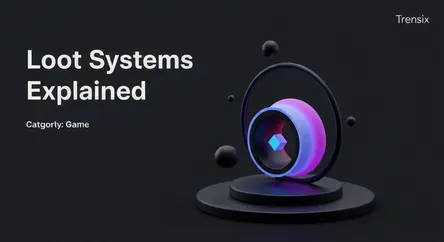Game
Loot Systems Explained

Discover the mechanics behind loot systems. Learn how random rewards and progression keep players engaged in games like RPGs and looter-shooters.
What is it?
A loot system is the set of rules in a video game that governs how players acquire items, or "loot." This includes rewards from defeating enemies, completing quests, or opening containers like treasure chests. These systems often rely on a Random Number Generator (RNG) to determine the quality and type of items dropped, which are typically categorized by rarity (e.g., common, rare, legendary). The goal is to provide a steady stream of rewards that enhance a player's character, offering new abilities, better stats, or cosmetic changes. Well-designed loot systems are fundamental to a game's progression and replayability.
Why is it trending?
Loot systems are trending because they are the core engagement loop for many of today's most popular genres, especially live-service games, looter-shooters, and MMORPGs. Developers continuously innovate these systems to keep player retention high. The thrill of hunting for a rare, powerful item creates a compelling and addictive experience that keeps players invested for hundreds of hours. Furthermore, the discussion around the monetization of loot, such as in loot boxes or gacha mechanics, keeps the topic relevant in industry news and player communities.
How does it affect people?
Loot systems have a strong psychological impact. The unpredictable nature of rewards taps into the brain's pleasure centers, similar to a slot machine, creating excitement and a drive to keep playing for that "one more drop." This can foster a deep sense of achievement and satisfaction when a coveted item is finally obtained. On the other hand, it can also lead to frustration and burnout when players grind for long periods without receiving desired rewards. When tied to real-money transactions, controversial loot systems can also be criticized for encouraging gambling-like behaviors and creating pay-to-win imbalances.